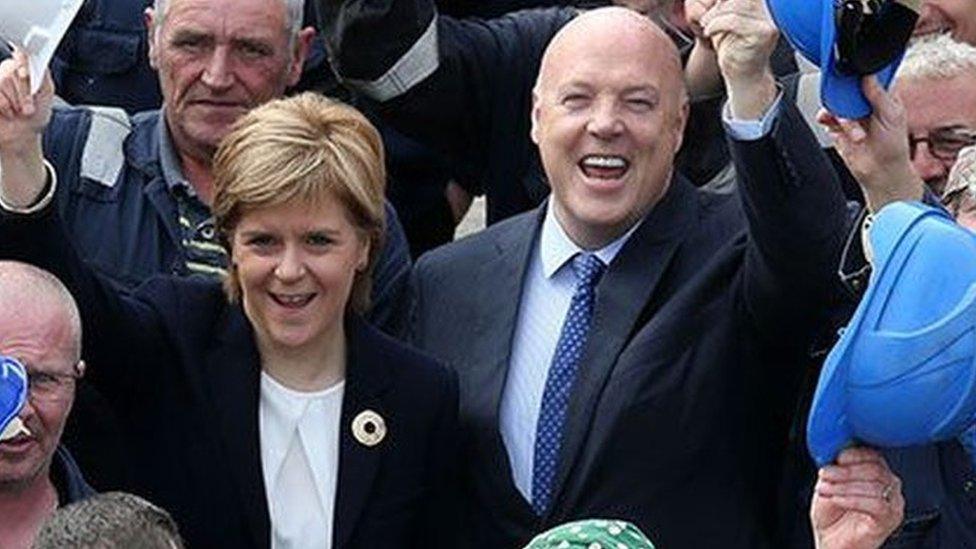Sturgeon breached ministerial code over ferry meeting, say Tories
- Published
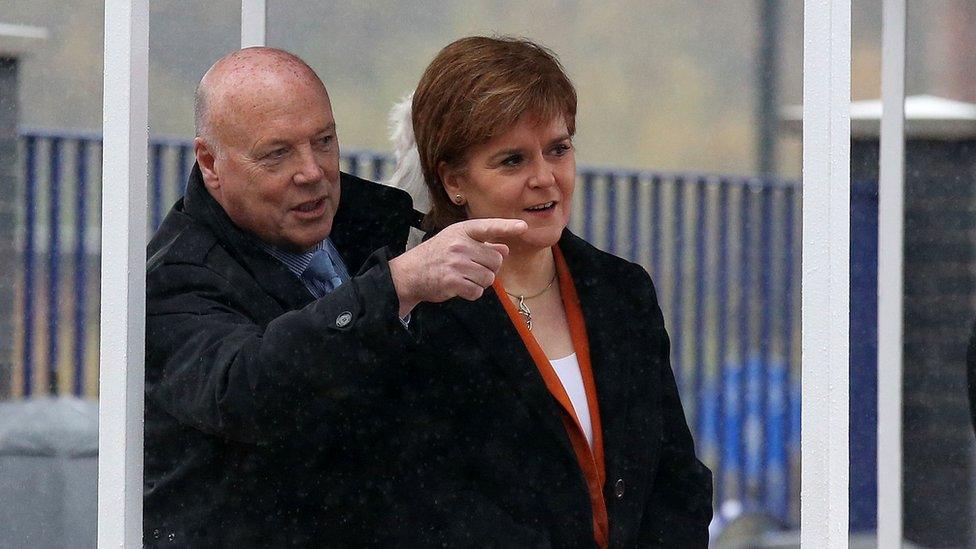
Jim McColl has said he did not agree with Nicola Sturgeon's account of how their May 2017 discussion went
The Scottish Conservatives have called on Nicola Sturgeon to refer herself for "clear breaches" of the ministerial code during the ferries fiasco.
They have accused the first minister of failing to properly record a meeting with the then Ferguson Marine shipyard owner Jim McColl in May 2017.
The party also alleges Ms Sturgeon failed to have a civil servant present.
A Scottish government spokesperson said the first minister had "complied in full" with the obligations of the code.
The complaint follows evidence given by Ms Sturgeon to Holyrood's public audit committee last month.
She told committee members at the time she would provide details of the meeting with Mr McColl.
But Scottish Tory chairman Craig Hoy insists files lodged with the committee "contain no substantive record of it".
'More worrying'
He says an email sent by an unnamed special adviser who was at the meeting does not contain the "basic facts" required to be recorded under the ministerial code.
Mr Hoy said: "The email evidence which the first minister presents as the supposed minute of a meeting with Jim McColl is nothing of the sort because it reveals very little about what was actually discussed.
"This is made more worrying by the fact that Mr McColl has given a very different account of the discussion.
"Nicola Sturgeon also appears to have forgotten the clear distinction between special advisers and civil service officials."
Mr Hoy added: "Her evasiveness under questioning from the committee last month set alarm bells ringing, and the lack of detail in her subsequent correspondence adds to the suspicion that she has something to hide.
"The public deserves to know the truth. That's why, in addition to referring herself, Nicola Sturgeon must agree to hold a full, independent public inquiry into the whole ferries scandal."
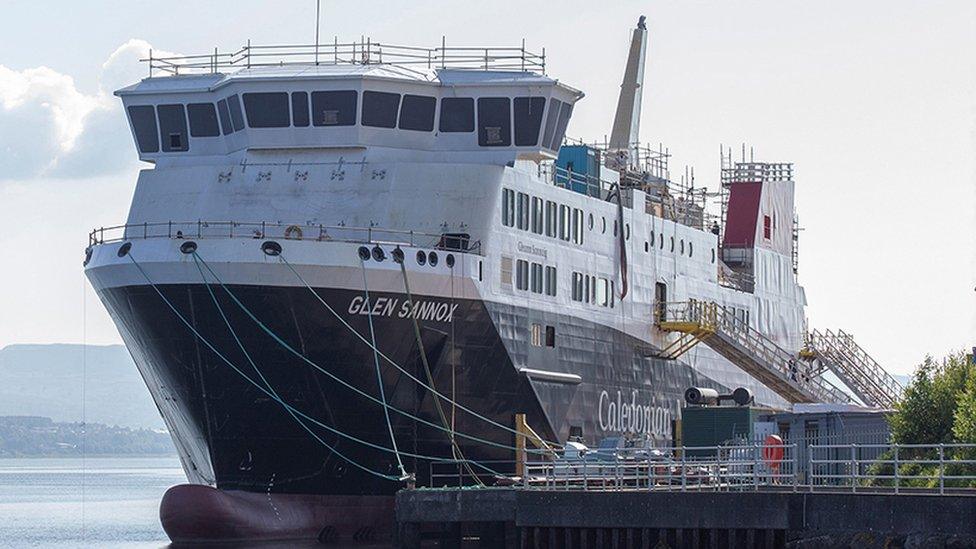
The Glen Sannox was one of two ferries to be built as part of the government deal
Earlier this week, Mr McColl claimed ministers later wasted £200m by rejecting an offer to end the impasse over two CalMac ferries.
Mr McColl revealed details of a proposal he made in 2019 to split the cost of finishing the ships, and limit the government's contribution to £50m.
Instead, the shipyard in Port Glasgow was nationalised and the bill for completing the vessels has since risen by about £240m.

How much have the ferries cost?
The original contract was for £97m, and £83m had been handed over to FMEL by the time it went bust. It was agreed that CMAL would not have to pay any more money.
After the yard was nationalised in 2019, "turnaround director" Tim Hair estimated it would cost a further £110m-£114m to complete the ships.
By March this year that figure had risen to £119m-£123m but in September new Ferguson boss David Tydeman advised MSPs the figure would probably rise to nearly £210m.
The shipyard's estimate is therefore £83m + £210m = £293m.
Many commentators, including the Auditor General of Scotland, believe that £45m of written down government loans to FMEL should also be included - taking the total to £338m. That is £240m above the original contract price.
There are also some additional costs that others believe could be added in. The process of nationalising the shipyard cost £8.3m. Troubleshooter Tim Hair was taken on at a daily rate of about £2,500. By the time he left earlier this year, he had billed the government nearly £2m for 595 days' work.

The government said Mr McColl's proposal breached EU state aid rules.
Mr McColl gave details of the offer, including legal advice that it was compliant with EU rules, in his latest submission, external to the public audit committee inquiry.
The offer was made in the spring of 2019 when relations between Mr McColl's company Ferguson Marine Engineering Ltd (FMEL) and government ferries agency CMAL had completely broken down.
State aid issues
Ms Sturgeon has previously told the MSPs that Mr McColl's last-ditch offer was "rigorously assessed" but could not be considered for "a range of state aid and legal procurement issues".
A Scottish government spokesperson said the May 2017 meeting between Ms Sturgeon and Mr McColl "was arranged through the civil service and so, by definition, officials were aware of the details".
The spokesperson added: "The meeting was recorded in the official record of ministerial engagements published by the government. An official - a special adviser - was present and a brief note of the outcome recorded. To claim otherwise is factually wrong.
"In evidence to the committee, the first minister gave a commitment to see whether information relating to actions resulting from the meeting could be made available. This has been done."
The government regards special advisers as temporary civil servants, therefore it argues it complied with the ministerial code.
- Published29 November 2022
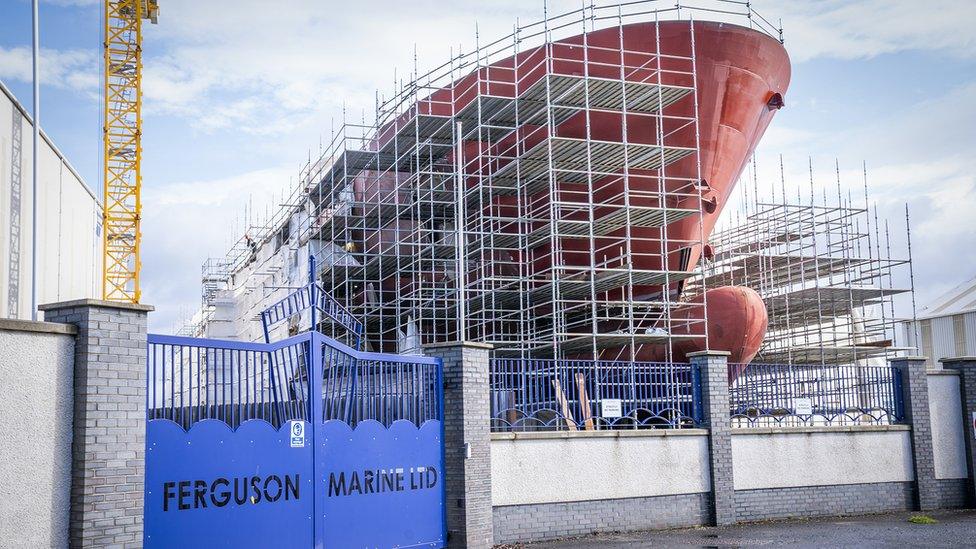
- Published27 September 2022
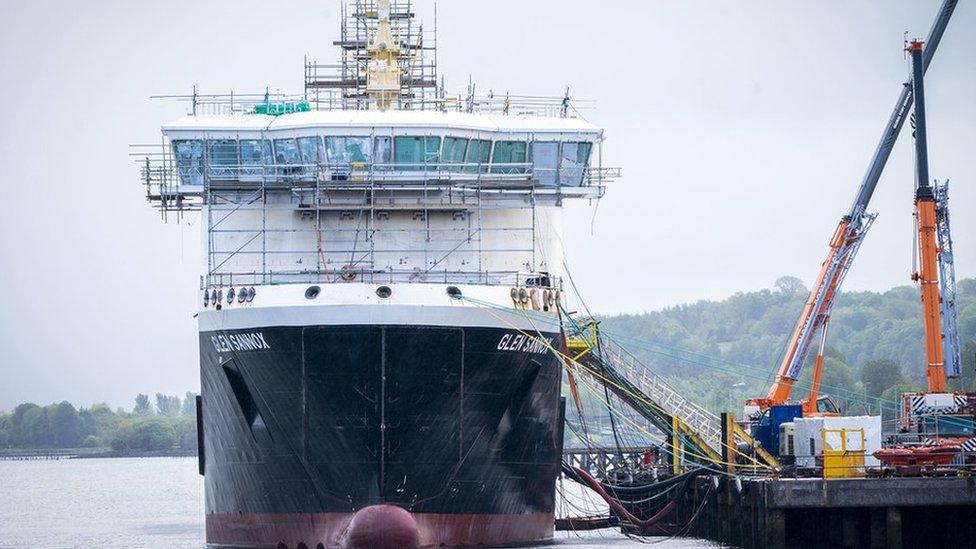
- Published3 May 2022
